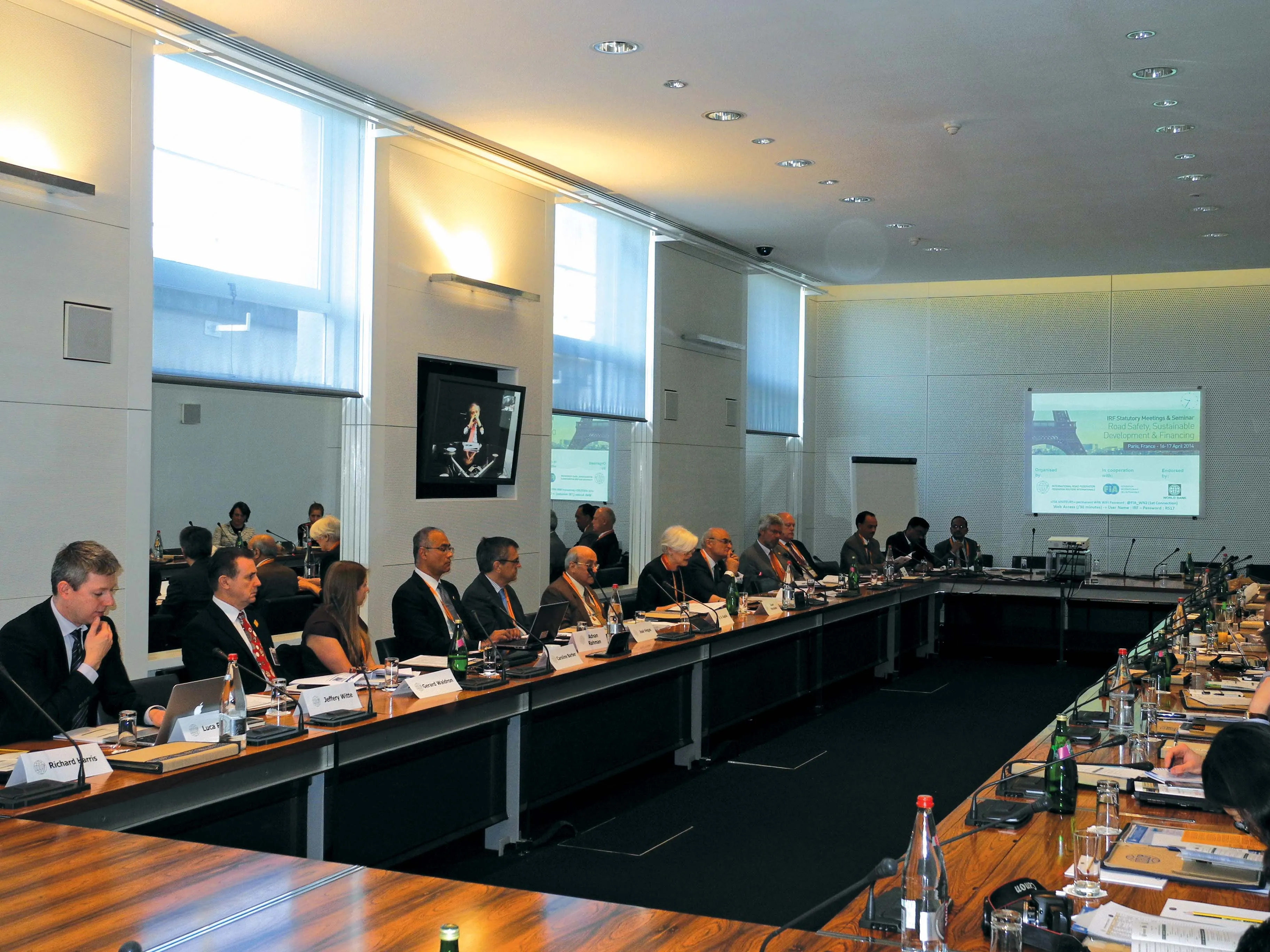The Safer Africa project - funded under the EU Horizon2020 Programme - aims at establishing a Dialogue Platform between Africa and Europe focused on road safety and traffic management issues.
It will represent a high-level body with the main objective of providing recommendations to update the African Road Safety Action Plan and the African Road Safety Charter, as well as fostering the adoption of specific initiatives, properly funded.
The involvement of development banks will ensure the identification
January 30, 2017
Read time: 3 mins
The Safer Africa project - funded under the EU Horizon2020 Programme - aims at establishing a Dialogue Platform between Africa and Europe focused on road safety and traffic management issues.
It will represent a high-level body with the main objective of providing recommendations to update the African Road Safety Action Plan and the African Road Safety Charter, as well as fostering the adoption of specific initiatives, properly funded.
The involvement of development banks will ensure the identification of available resources and the definition of suitable schemes for funding. The activity of the Platform will also focus on the reinforcement of the endogenous African capabilities through the dissemination of the EU know-how.
Twinning programs will be set up, besides the conduction of different training activities. Local contexts will be duly taken into account and studies on specific risk factors as well as transferability analysis of measures already tested elsewhere will be conducted. The project activities will be oriented to the “Safe System” approach and grouped in four pillars: Road Safety Knowledge and Data; Road Safety and Traffic Management Capacity Review; Capacity Building and Training; Sharing of Good Practices.
The platform will work at two levels. A decision-making level, run by a Management Board basing its actions on information provided and activities carried out by a technical level, with established Working Groups addressing specific topics. The Management Board will be constituted by prominent institutions like EC, the African Union Commission, Financial Institutions, Regional Economic Commissions (UN).
The technical level will involve government and research institutions, international and stakeholder organisations (e.g. NGOs), with a fair balance between African and EU partners, even for what concerns responsibilities (e.g. Euro-African work package co-leadership). The Dialogue Platform is intended to constitute a stable body, able to orient road safety policies beyond the project end.
For more info, please contact %$Linker:2 Email <?xml version="1.0" encoding="utf-16"?><dictionary /> 0 0 0 oLinkEmail [email protected] email [email protected] false mailto:[email protected] true false %>
The winning consortium includes:
1. Universita Degli Studi Di Roma La Sapienza (Italy)
2. National Technical University Of Athens - Ntua (Greece)
3. Belgisch Instituut Voor De Verkeersveiligheid Vzw Institut Belge Pourla Securite Routiere Asbl (Belgium)
4. International Road Federation (Switzerland)
5. Institut Francais Des Sciences Et Technologies Des Transports, De L'amenagement Et Des Reseaux (France)
6. Loughborough University (United Kingdom)
7. Laboratorio Nacional De Engenharia Civil (Portugal)
8. Stichting Wetenschappelijk Onderzoek Verkeersveiligheid (Netherlands)
9. Sitrass (France)
10. Agenzia Per La Promozione Della Ricerca Europea (Italy)
11. Chalmers Tekniska Hoegskola Ab (Sweden)
12. Ecole Nationale Supérieure Des Travaux Publics (Cameroon)
13. Association Federation Handicap International (France)
14. Abidjan-Lagos Corridor Organization (Benin)
15. Initiatives Conseil International - Sante (Burkina Faso)
16. The World Bank Group (United States)
17. The International Motor Vehicle Inspection Committee (Belgium)
18. Namibia Roads Authority (Namibia)
It will represent a high-level body with the main objective of providing recommendations to update the African Road Safety Action Plan and the African Road Safety Charter, as well as fostering the adoption of specific initiatives, properly funded.
The involvement of development banks will ensure the identification of available resources and the definition of suitable schemes for funding. The activity of the Platform will also focus on the reinforcement of the endogenous African capabilities through the dissemination of the EU know-how.
Twinning programs will be set up, besides the conduction of different training activities. Local contexts will be duly taken into account and studies on specific risk factors as well as transferability analysis of measures already tested elsewhere will be conducted. The project activities will be oriented to the “Safe System” approach and grouped in four pillars: Road Safety Knowledge and Data; Road Safety and Traffic Management Capacity Review; Capacity Building and Training; Sharing of Good Practices.
The platform will work at two levels. A decision-making level, run by a Management Board basing its actions on information provided and activities carried out by a technical level, with established Working Groups addressing specific topics. The Management Board will be constituted by prominent institutions like EC, the African Union Commission, Financial Institutions, Regional Economic Commissions (UN).
The technical level will involve government and research institutions, international and stakeholder organisations (e.g. NGOs), with a fair balance between African and EU partners, even for what concerns responsibilities (e.g. Euro-African work package co-leadership). The Dialogue Platform is intended to constitute a stable body, able to orient road safety policies beyond the project end.
For more info, please contact %$Linker:
The winning consortium includes:
1. Universita Degli Studi Di Roma La Sapienza (Italy)
2. National Technical University Of Athens - Ntua (Greece)
3. Belgisch Instituut Voor De Verkeersveiligheid Vzw Institut Belge Pourla Securite Routiere Asbl (Belgium)
4. International Road Federation (Switzerland)
5. Institut Francais Des Sciences Et Technologies Des Transports, De L'amenagement Et Des Reseaux (France)
6. Loughborough University (United Kingdom)
7. Laboratorio Nacional De Engenharia Civil (Portugal)
8. Stichting Wetenschappelijk Onderzoek Verkeersveiligheid (Netherlands)
9. Sitrass (France)
10. Agenzia Per La Promozione Della Ricerca Europea (Italy)
11. Chalmers Tekniska Hoegskola Ab (Sweden)
12. Ecole Nationale Supérieure Des Travaux Publics (Cameroon)
13. Association Federation Handicap International (France)
14. Abidjan-Lagos Corridor Organization (Benin)
15. Initiatives Conseil International - Sante (Burkina Faso)
16. The World Bank Group (United States)
17. The International Motor Vehicle Inspection Committee (Belgium)
18. Namibia Roads Authority (Namibia)








